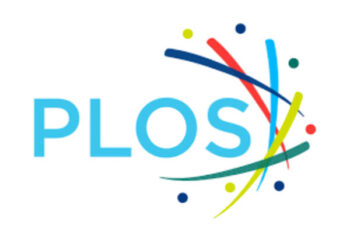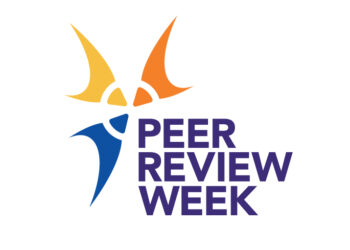
Within the last few weeks, an essay was published in that venerable news outlet, The New York Times. Entitled “Amongst the Disrupted”, Leon Wieseltier’s essay was about the threatened loss to the life of the mind in an information environment obsessed with assessment of value based on quantified data and metrics. Written in the wake of lay-offs and resignations at The New Republic where Wieseltier had served as literary editor for several decades, the piece was a sad plea that the 21st century not dismiss the practices and values of centuries of humanist thought in order to satisfy a culture of urgency and economic profit. Wieseltier fears a disruption to the considered and authoritative expression of ideas.
As communication, even for the educated audience of the Times, it’s not clear that the piece successfully delivered its message. While there were elegant turns of phrase, the essay used sentence structure and vocabulary more usually found in scholarly monographs than in a daily newspaper. Reactions expressed on external platforms were plentiful, and not always sympathetic.
A critic writing for The Slate Book Review characterized it as an “almost impossibly erudite and complex elaboration”. On a private listserv to which I subscribe, the piece was referred to as “mawkish” nostalgia. Others mocked the essay on Twitter where it was chiefly interpreted as ranting by a grumpy old geezer incapable of understanding and embracing technology. (That happens when an author ecstatically notes “What a voluptuous device paper is!”. One may be willing to allow the tactile delight, but the act of communication is not primarily about the medium. It’s about conveying understanding — if not always agreement — between two minds.)
There was one brief passage that summarized Wieseltier’s anguish about disruptive technologies and their impact…
The processing of information is not the highest aim to which the human spirit can aspire, and neither is competitiveness in a global economy. The character of our society cannot be determined by engineers.
Wieseltier believes that the attention given to tools of technology is in danger of eclipsing attention given to the real work of the mind.
Two pieces, also cautionary in tone, appeared within a week of Wieselter’s essay. One was by Georgia Tech professor Ian Bogost in The Atlantic (The Cathedral of Computation) and the other — also in The Atlantic — was by Olin College of Engineering Associate Professor, Debbie Chachra (Why I Am Not A Maker) While using slightly different arguments, the two essays echoed the worrisome idea that we are apt to endow new technologies with an undeserved value and criticality, losing sight of the human creator.
In one of the responses to Wieseltier’s essay, “Who’s Afraid of Robot Culture“, there was a quote that both justifies Wieseltier’s fears even as it expresses a rationale for embracing new forms of scholarship. Freelance journalist Kyle Chayka quotes artist Matthew Plummer-Fernandez as saying “I was imagining that such a system would provide a more innocent and honest reading of art, without being burdened by art history, peer reviews and collective consensus.” (added emphasis mine)
From where we sit in the Scholarly Kitchen, the idea that anyone might view art history, peer reviews, and collective consensus as burdensome is frankly appalling. But to focus on that misses the point of the artist’s work. The Novice Art Blogger is essentially an artistic experiment in cognitive computing. (See this brief write-up for background.) How does a combination of algorithms, an artificial intelligence — a ‘bot — see and interpret works of art? If not constrained by how human minds have done it historically, the ‘bot may be able to see and express meaning for itself, if not more successfully, than at least differently. The value of the work lies less in the ‘bot itself (the technology) than in the ways it may better define the value of the human in an increasingly techno-centric world.
Has this anything to do with scholarly publishing? Perhaps less to do with scholarly publishing as a business, and more to do with scholarly communication as a function. If you listen to publishers and librarians, much of the current conversation is practical, focused on ensuring that our various systems are interoperable, that unique identifiers are adopted and taxonomies properly leveraged. As necessary as all of that is, at times it can sound to our clientele as if it is all about the technology and not about supporting the work of the mind. In thinking about the evolving scholarly record in the 21st century as I would hope we all are, information industry professionals need to recognize the objectives for publishing such a record and the needs of subsequent usage by the community. We need to ask and we need to evaluate responses to these questions:
- What new formats foster new understanding, and under which disciplinary conditions?
- When (and why) do scholars actually need to author a full-length monograph in order to convey in-depth research findings?
- When should images and video supercede text as research output?
- How might the processing of statistical data in materials science (as an example) differ from the processing of scientific data in another discipline? What impact has that on output presentation?
- What kind of context should surround any given form of output?
- Which metrics reflect actual (as opposed to inferred) use?
The challenge is not just to answer such questions, but for the information community to answer them in the context of supporting effective communication.
Discussion
12 Thoughts on "Conveying Understanding: That Grumpy Essay in the New York Times"
These closing questions still sound rather techno-centric to me. If we want to focus on the works of the mind some better questions might be like these:
How do we find the most important work to publish?
How do we convey what is and is not going on in a field?
How much progress is being made and how can we improve that?
How can we move good ideas more efficiently?
The focus needs to be on the ideas, not the medium.
I might have viewed my set as being more format-centric than techno-centric, but aside from that, I like your list of questions.
Thanks Jill (I regard writing itself as a technology, albeit a 6000 year old one, but never mind that now). My approach is to regard ideas as living things, such that people are just hosts to them. See for example my http://scholarlykitchen.sspnet.org/2012/07/17/how-does-science-progress-by-branching-and-leaping-perhaps/.
Two of the more idea-centric uses of the literature that I have focused on are (1) trying to see what is going on in a given field, what the ideas are and how they are changing, and (2) looking for specific new ideas for one’s own work. Of course there are also people-centric uses such as seeing who is doing what, or looking at specific institutions or even journals. It is all too easy to become people focused, because ideas are harder to see.
Sounds like you are a Platonist! Ideas having an existence independent of human minds. Hmmm.
More of a Hegelian, Sandy, as I was especially influenced by his “Phenomenology of Mind.” For example my team applied a disease model to the spread of scientific ideas, hence regarding humans as hosts. The results support the idea that open access can accelerate scientific progress. See “Report for the Office of Scientific and Technical Information: Population Modeling of the Emergence and Development of Scientific Fields.” http://www.osti.gov/scitech/biblio/990671 and “The Digital Road to Scientific Knowledge Diffusion; A Faster, Better Way to Scientific Progress?.” http://www.osti.gov/scitech/biblio/902122.
I didn’t view the essay as “sad” but rather as passionate, and I pretty much agreed with every word.
Nor did I think the language more appropriate to academic journals, where the style is so often turgid and hard to read. I thought the style matched the purpose: a passionate defense of thinking that cannot be easily quantified.
Since I’m constantly sifting through educational products that suggest thinking can always be measured and turned into an “outcome.” I was thrilled to see Wieseltier’s essay, I don’t think that Twitterati’s not liking it is a sign that he was generally off the mark. I suspect it was more a sign that, for some, the essay took too long to read. I think that’s their problem not his.
You pick up on a word that I had used — “sad”. I think I interpreted the essay as being a sad plea because Wieseltier worries that we’re in danger of devaluing traditional practices of scholarship in favor of emerging tools and forms. I don’t think that’s the case. Bogost and Chachra were also sounding alarms (although they managed to make their points without sounding as though they blamed emerging technology.) My point was that we need to focus on ensuring that we as service providers (whether we serve as librarians or publishers) don’t also send the message that technology is paramount. Neither should we send the message that emerging technologies have less value than the printed volume and I think I did detect a sense of that in the Times essay. For me, there’s a middle ground.
Hi Jill, I basically agree with what you say here wholeheartedly: “My point was that we need to focus on ensuring that we as service providers (whether we serve as librarians or publishers) don’t also send the message that technology is paramount. Neither should we send the message that emerging technologies have less value than the printed volume and I think I did detect a sense of that in the Times essay. For me, there’s a middle ground.”
I’m going to re-read Weseltier’s essay because I didn’t see his devaluing technology but more his angst about the current tendency of many people to act as if ONLY the information or ideas that can be handled by technology are worthy of attention, relegating ideas that require or demand nuance and ambiguity to the trash heap of thought. In other words, I thought he was arguing, as you and I would I think, against the loss of a middle ground.
But I freely admit, that’s my personal position– that what gets celebrated, at least in the world I inhabit i.e. educational technology, are platforms, products, start ups that assume all knowledge, all thought can be reduced to yes or no answers easily corrected or responded to by a machine.
Therefore, it was nice to see someone saying, in language I found quite moving rather than pompous and academic, “Whoa there. Something important to how we live is getting lost in the current climate of techno-love ” And, for starters, your titling that position “grumpy” and then “sad” made me, well, grumpy and sad. You may, however, be right about Weseltier’s attitude, and I’ll look at the piece again, thanks to your post.
The problem in setting the questions as you have is that they are shaped by the received medium (print). The claim that we can somehow evaluate the merit of scholarly ideas independent of the medium by which they are created and through which they are communicated is itself something that needs interrogating — not least because at the moment the determination of many (like Wieseltier) that they are somehow intertwined is obstructing the acceptance of the claim that ideas can be both investigated and communicated through other, non-print media. Vico was right — institutions shape ideas, not the other way around.
How does McLuhan–“the medium is the message”–fit into all this?
Gee, I think it is easy to “evaluate the merit of scholarly ideas independent of the medium by which they are created and through which they are communicated.” We do it all the time, based on the results these ideas bring about, including fame.
Nor do I agree that “institutions shape ideas, not the other way around.” It actually works both ways, otherwise institutions would not change.


